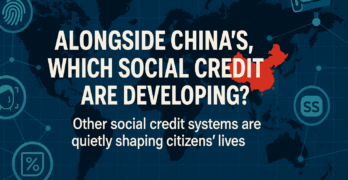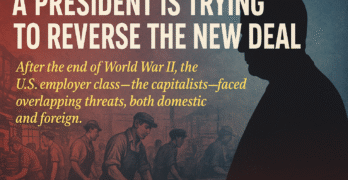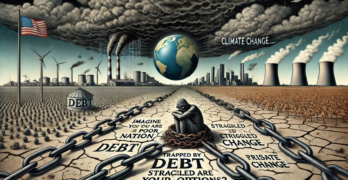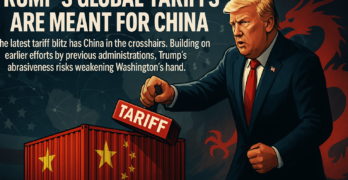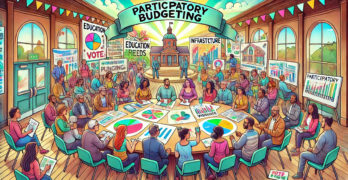China’s state-run social credit system has drawn global attention for years, but other versions are actively spreading. These systems increasingly shape the behavior and outcomes of citizens’ lives, often without their knowledge.
Trump is Trying to Reverse the New Deal
After the end of World War II, the U.S. employer class—the capitalists—faced overlapping threats, both domestic and foreign. On the domestic side, a coalition of the Congress of Industrial Organizations (CIO), two socialist parties, and a communist party had grown large and powerful during the 1930s Great Depression.
United Steelworkers Lead Mobilization Drive as American Unions Face Growing Vulnerability
The USW must navigate factionalism while championing labor rights amid rising anti-union pressures and global trade fragmentation.
The World’s Greatest Long Hikes
For those willing to brave extended treks in nature, the world’s best long hikes offer challenges and amazing rewards.
Imagine You Are a Poor Nation, Trapped by Debt and Strangled by Climate Change—What Are Your Options?
Climate change, debt, and development have a caustic relationship, hindering economic justice and national advancement, but solutions exist.
Trump’s Global Tariffs Are Meant for China
The latest tariff blitz has China in the crosshairs. Building on earlier efforts by previous administrations, Trump’s abrasiveness risks weakening Washington’s hand.
Trump’s Bid to Transform International Relations May Succeed
Eliminating bureaucracy and abandoning the world order that the U.S. helped build may allow Trump to recalibrate foreign policy, at the cost of global stability.
Participatory Budgeting Includes Community Members in the Public Funding Process
As governmental authoritarianism intensifies, citizens “double down on democracy” through the participatory model.
The Coming Age of Border Changes?
Trump’s remarks on annexing territory and recognizing Russian and Israeli territorial gains may align with his geopolitical ambitions, but the disruption to longstanding norms of fixed borders sets a risky precedent.
Foreign Companies Driving the Global Privatization of Domestic Infrastructure
Foreign entities have secured profitable positions in once-public domestic infrastructure. The pursuit of short-term cash has sacrificed long-term revenue streams to a variety of foreign investors.
